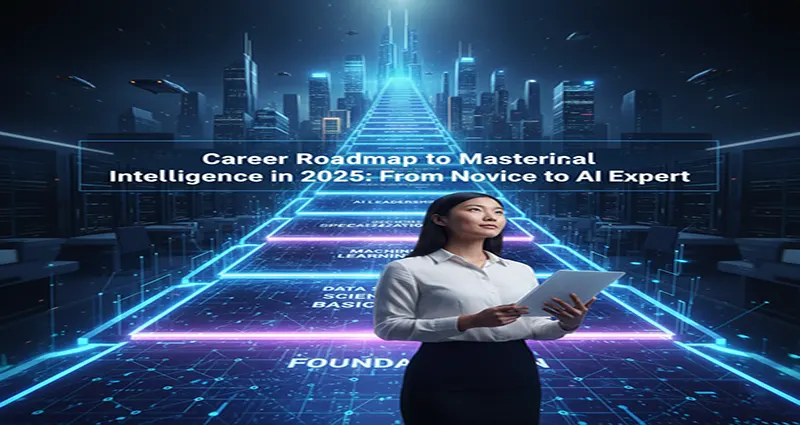Career Roadmap to Mastering Artificial Intelligence in 2025: From Novice to AI Expert
The Artificial Intelligence (AI) landscape is rapidly evolving, driven by the emergence of Generative AI, Agentic AI, and Multimodal AI. As AI fluency becomes a core skill across industries, mastering this field in 2025 offers substantial career growth and a premium on wages. This roadmap provides a structured path for aspiring AI professionals.
Stage 1: Build a Strong Foundation (The Core)
Before diving into complex models, establish a solid technical base. This stage is non-negotiable for long-term mastery.
| o | Programming Excellence (Python is Key): | |
| » | Master Python, the most widely used language in AI, focusing on data structures, basic algorithms, and object-oriented programming. | |
| » | Become proficient with core AI libraries like NumPy (for numerical operations) and Pandas (for data manipulation and analysis). | |
| o | Mathematical and Statistical Fundamentals: | |
| » | A strong grasp of Linear Algebra (vectors, matrices, and their operations) is essential for understanding how most algorithms |










